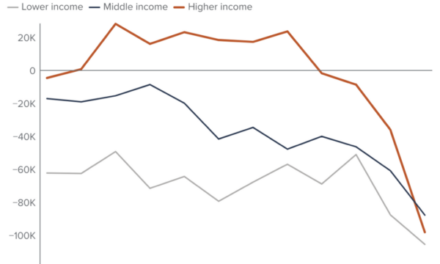We support our Publishers and Content Creators. You can view this story on their website by CLICKING HERE.
Last week Victor Davis Hanson noted that Germany’s current de-industrialization, born of its fanatical “Net-Zero” climate mania that has resulted in ruinously high energy prices, resembles a self-imposed “Morgenthau Plan” from World War II. For readers not up on their World War II history, the “Morgenthau Plan” was a proposal hatched by the staff of, and endorsed by, Treasury Secretary Hans Morgenthau and presented to FDR at the Quebec summit with Churchill in 1944. It called for post-war Germany to be fully “de-industrialized” and turned into “a country primarily agricultural and pastoral in its character,” as one document of the time put it.
As Hanson noted, it amounted to a punitive “Carthaginian” peace. Significantly, Morgenthau, who enjoyed special access to FDR, presented the proposal to FDR and Churchill without Secretary of War Henry Stimson or Secretary of State Cordell Hull present—both of whom were violently opposed to the Morgenthau Plan when they learned of it.
Somehow both FDR and Churchill endorsed the plan when it was presented at Quebec, but the blowback, especially from Stimson, was volcanic. FDR likely signed off in haste and without thinking carefully about it in the crush of summit items, and Churchill, initially opposed, was bought off with a U.S. Treasury promise of billions in low-interest loans to Britain—an offer he couldn’t refuse, he said to his Foreign Secretary Anthony Eden.
Stimson intervened directly with FDR after the summit, and turned FDR around. Stimson’s memoir said when he presented the full implications of the Morgenthau Plan, FDR admitted that “he was frankly staggered by this and said he had no idea how he could have initialed this; that he had evidently done it without much thought.”
Realize that the Morgenthau Plan would have ruled out post-war Germany as potent ally against the Soviet Union, especially significant after NATO was formed later. It was designed to ensure that Germany was poor and weak—easy pickings, perhaps, for the Soviet Union after the war.
Just how did such a punitive plan come about in the first place? It turns out that Morgenthau’s senior staff was highly penetrated by Soviet agents and Communist sympathizers. Most of the names of his staff have been forgotten, with the partial exception of Harry Dexter White, who committed suicide in the late 1940s right after both Elizabeth Bentley and Whittaker Chambers named White as a Soviet agent. But M. Stanton Evans (my first mentor) and Herbert Rommerstein, long time senior staff member of the House Intelligence Committee, identified the others from corroborating testimony and the decrypted VENONA documents that came to light in the late 1990s. In addition to White, other Morgenthau staffers who were Communist sympathizers or perhaps even paid agents included Solomon Adler, Josiah Dubois, Sonia Gold, Harold Glasser, William Taylor, V. Frank Coe (who defected to Communist China after the war), and Irving Kaplan. Many of these figures were involved in developing the Morgenthau Plan.
The Morgenthau Plan wasn’t the only pro-Soviet policy that Soviet sympathizers in high positions in FDR’s administration attempted or managed to put through successfully. Evans and Rommerstein offer numerous details in their 2012 book Stalin’s Secret Agents: The Subversion of Roosevelt’s Government.
The irony is clear enough: the Soviet Union hardly needed to exert itself to subvert Germany’s economic strength given that Germany would eventually choose to subvert themselves. (I used to similarly joke that the Soviet Union wasted a lot of money trying to infiltrate Hollywood in the 1940s and 1950s, when all they had to do was wait until Hollywood decided to make pro-Communist movies for free starting in the 1960s. Jane Fonda worked cheap.)
Which brings us back to the present moment. I have previously noted that agents of Iranian influence appear to be fully embedded or represented in our foreign and defense agencies, which ought to be a scandal all by itself. With Anthony Blinken this week admitting that American pressure on Israel last year has stiffened the resistance of Hamas to any deal that might release the hostages held in Gaza, one wonders whether pro-Iranian elements influenced these bad policy decisions, not to mention backstopping billions in U.S. aid for Gaza that Hamas steals, or support for UNRWA, which is a thoroughly Hamas-adjunct agency.
And needless to say we can’t quit our own “Net-Zero” madness fast enough. The progressive kill list is very long indeed.

 Conservative
Conservative  Search
Search Trending
Trending Current News
Current News 




